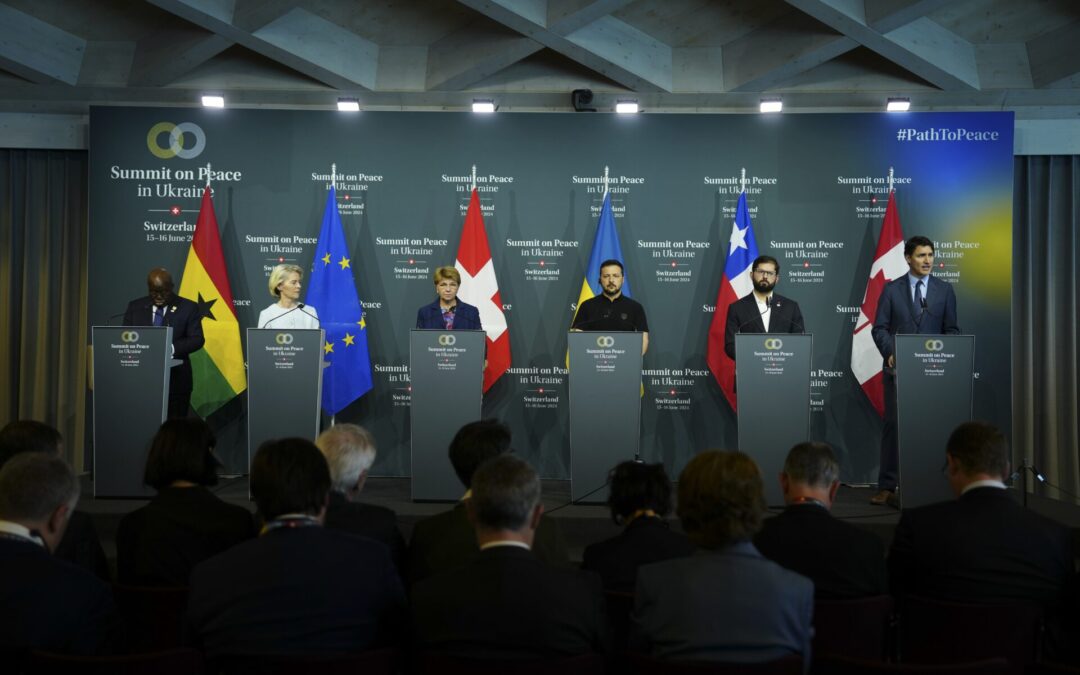Madrid – The Peace Summit for Ukraine held this weekend in Lucerne (Switzerland) highlighted the differences existing in the international community regarding the war in Ukraine, as a dozen countries, several of them from the so-called Global South, did not support the final declaration, which advocated for nuclear and maritime transit security, the release of prisoners, and the inclusion of Russia in future peace talks.
“We believe that achieving peace requires the participation and dialogue between all parties,” reads the final declaration of the meeting, signed by around 80 entities, including the United States, United Kingdom, European Commission, Italy, Portugal, and Spain.
The signatories defend the United Nations Charter and International Law as framework tools for “a lasting and just peace” that allow solving the issues addressed at the summit.
Additionally, they call for the return of “all civilians” deported and displaced “illegally” to Russia, for Ukraine’s nuclear facilities to be completely out of the conflict and under Ukraine’s sovereign control and supervision, and for “free, full, and safe commercial navigation.”
Several countries present at the Summit, such as India, Brazil, Saudi Arabia, South Africa, or the United Arab Emirates, did not sign the final declaration, a decision that the Ukrainian government accepted, noting that one of the goals of the meeting was to give voice to all kinds of opinions.
In the final press conference, the Ukrainian President, Volodimir Zelenski described the summit as a “great success for Ukraine and for all the partners” of the country. “We are responding to the large-scale invasion of Ukraine by Russia not only with a large-scale defense of human life but also with large-scale diplomacy,” he said.
In the first international reactions, the President of the European Commission, Ursula von der Leyen, called on Russia to listen to the international community’s message to “end its imperialist violence.”
Similarly, the EU High Representative for Foreign Affairs and Security Policy, Josep Borrell, highlighted that “more than a hundred leaders and international organizations” have sent the message of supporting a “just and lasting” peace for Ukraine under the framework of the United Nations Charter.
For his part, the President of the Government of Spain, Pedro Sánchez, communicated that the country will continue supporting Ukraine “as long as necessary” and opposed any solution to the conflict that “validates an aggression or an annexation by force” like the one perpetrated by Russia, as it “will not last and will only lead to a more unstable and dangerous world.”
Sánchez indicated that the blame for this war cannot be placed “on the West, on NATO” and argued that basic rules must be applied to maintain peaceful coexistence between countries. In his view, countries are united by “core values,” such as respect for sovereignty, independence, and territorial integrity of each one, which must be defended at all times and places.
The head of the Spanish government, who rejected peace involving “a solution that validates aggression or annexation by force,” hoped that the summit would help generate that consensus to eventually reach a solution in the future with all parties involved, including Russia. (June 15 and 16)
 go to the original language article
go to the original language article
